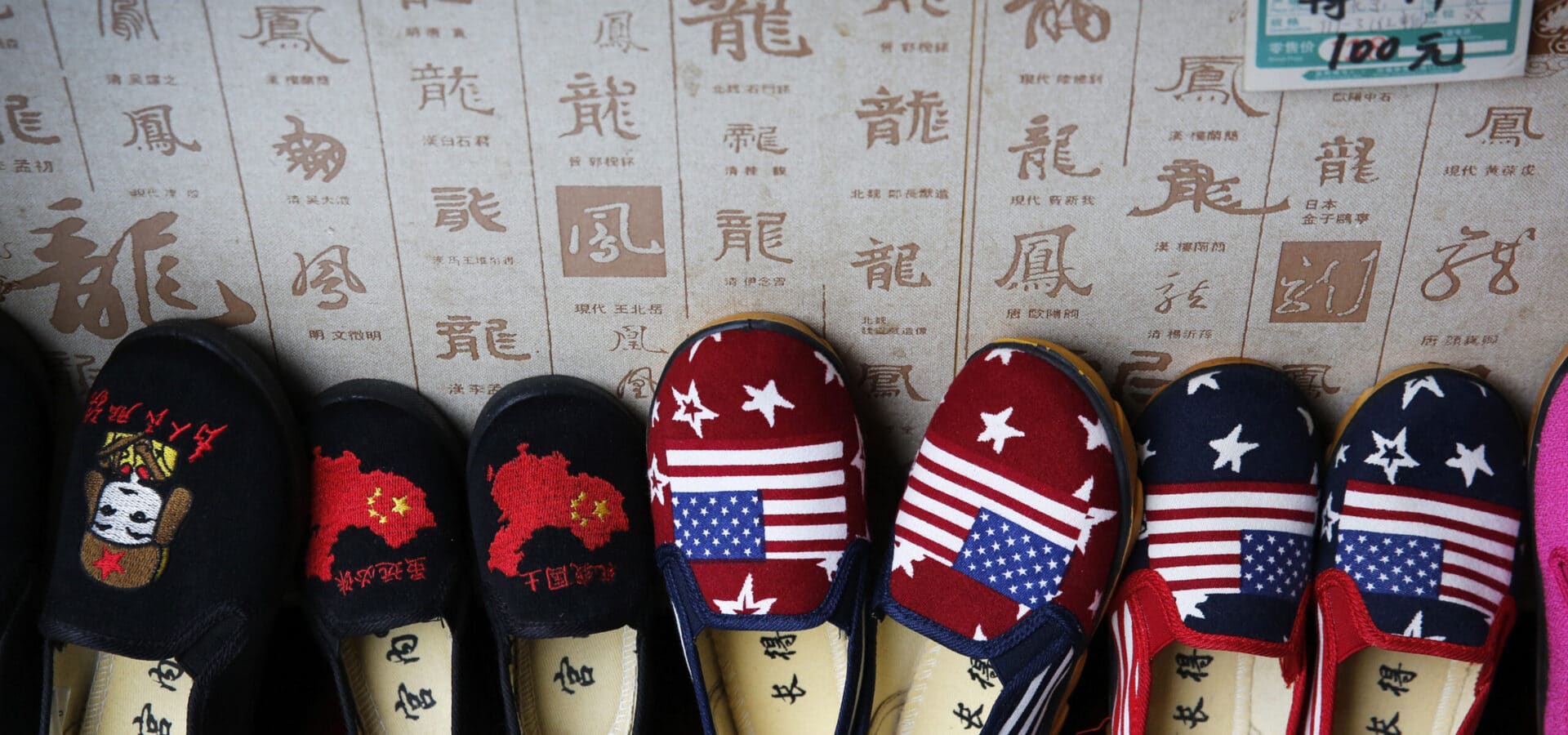
FILE - In this July 13, 2018 file photo, Chinese made children's shoes embroidered with Chinese maps and U.S. flags are on display at a shop in Beijing. Nation by nation, how is Election Day in the United States being watched, considered, assessed? It's all about trade for China — but trade is about hitting economic growth targets at home and being a technology leader abroad. The stormy commercial relationship between the world's two biggest economies since President Donald Trump took office is front and center in China's view of the U.S. election. (AP Photo/Andy Wong, File)





